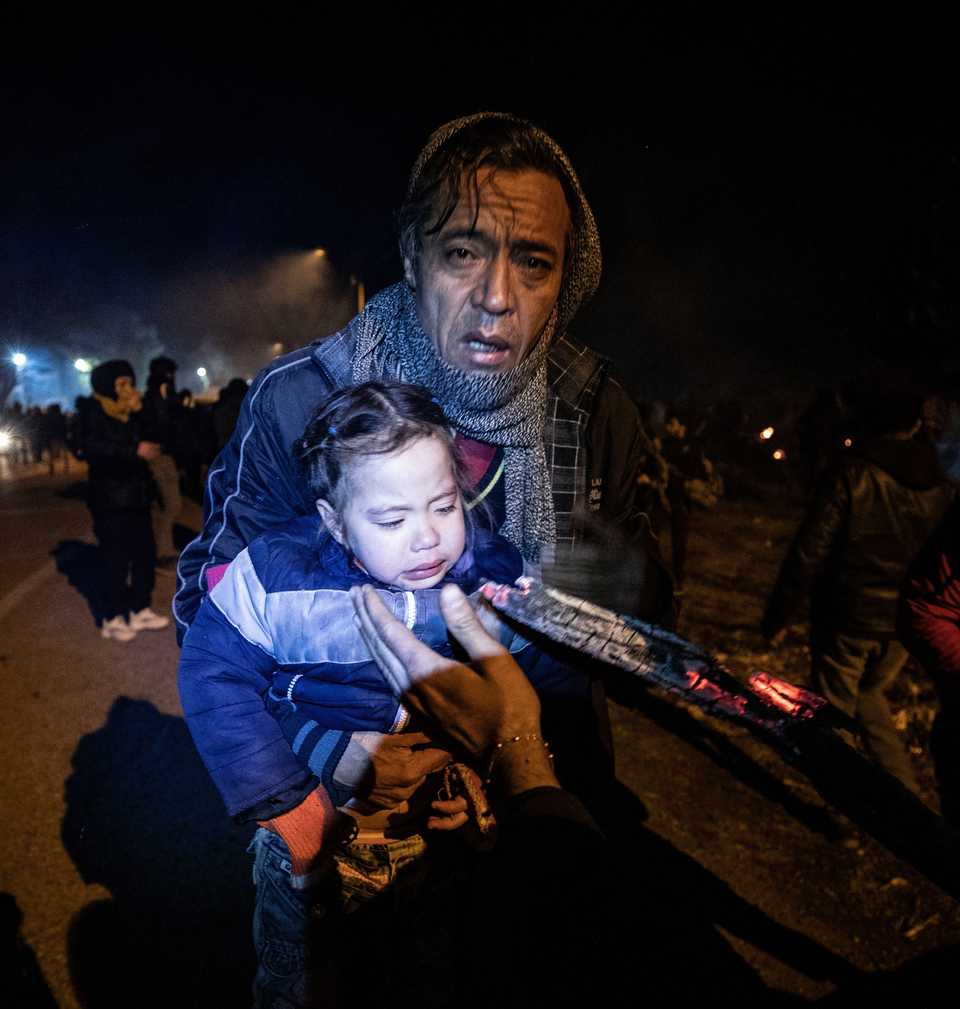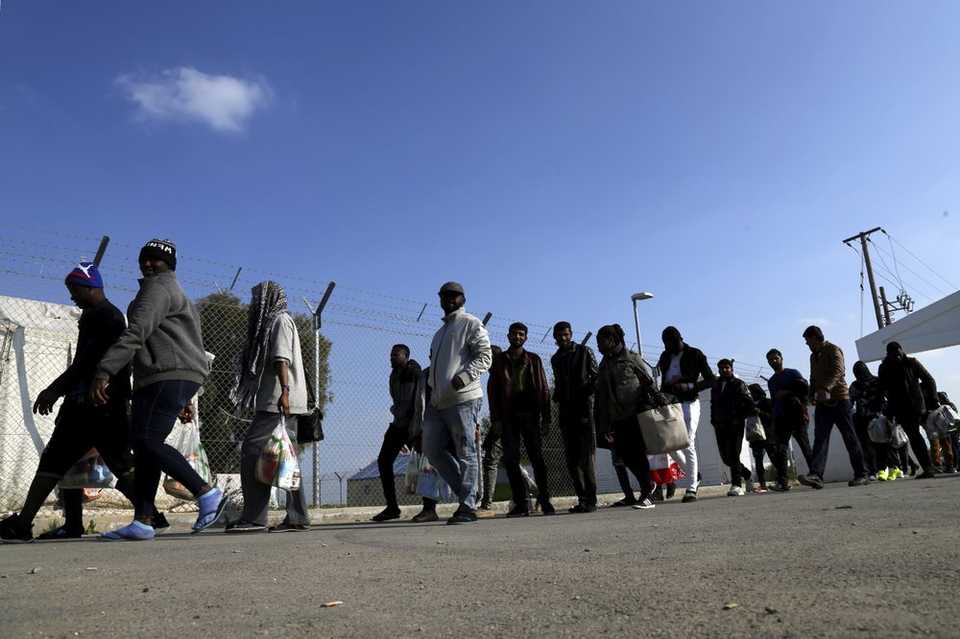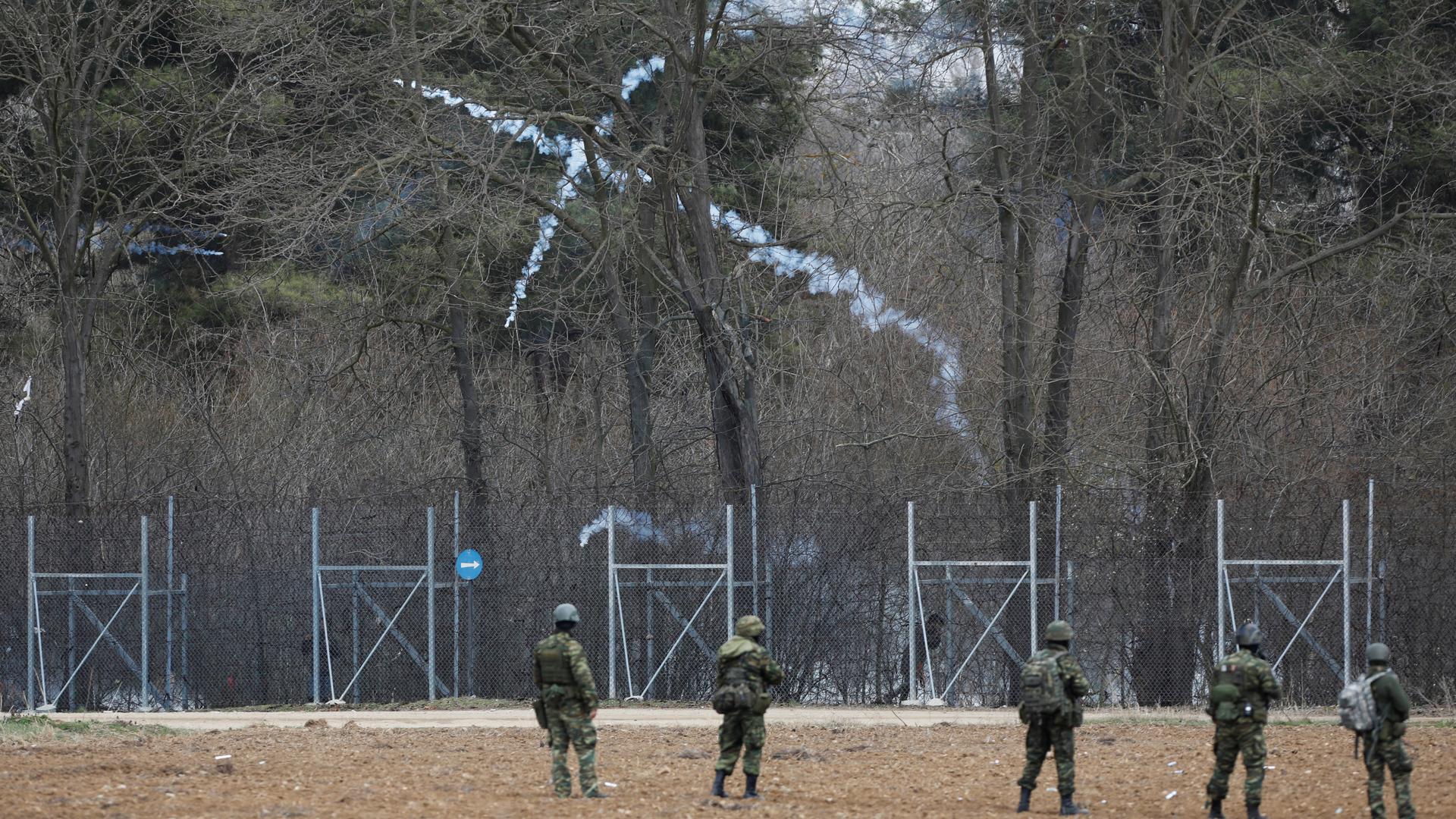Turkish officials said Greek forces killed a refugee and wounded five others on Wednesday as they tried to cross the border between the two countries at Pazarkule, Edirne.
Greek riot police and troops used water cannon and tear gas on Wednesday against groups of migrants as they made another attempt to cross the border from Turkey into Greece.
“The Greek police and border units have fired … plastic bullets and live ammunition on migrants waiting between the Kastanies and Pazarkule border gates,” Edirne Governor Ekrem Canalp said in a written statement.
The five men who were wounded had been shot in the foot, groin, head and chest by live bullets, Canalp said.
“Members of the Turkish Parliament’s Human Rights Commission, among others, witnessed the events,” his statement added.
Turkey, alarmed by the prospect of another wave of refugees fleeing war in northwest Syria, said last week it will no longer uphold a 2016 deal with the European Union to keep hundreds of thousands of migrants on its soil in return for EU aid.
Greek security forces have used force to stop migrants and refugees from crossing.
Greece denied refugee deaths, calling them “fake news”.
Greek Government Spokesperson @SteliosPetsas: The Turkish side creates and disperses fake news targeted against Greece. Today they created yet another such falsehood, with injured migrants and one dead supposedly by Greek fire. I categorically deny it. pic.twitter.com/ApHxJGTPEr
— Ελληνική Κυβέρνηση (@govgr) March 4, 2020
Kastanies border on fire
Plumes of black smoke drifted above the Pazarkule-Kastanies border crossing, and a fire engine raced by to put out smouldering blazes. Greek soldiers also fired warning shots into the air.
A Greek army vehicle equipped with loudspeakers informed the migrants in Arabic and other languages that the border is shut.
The clashes were near along a border fence in Kastanies that covers much of the land border not demarcated by the Evros river running along the frontier.
Violence in Lesvos
Refugees and migrants have also headed to Greek islands from the nearby Turkish coast in dinghies. One child died when the rubber dinghy he was in capsized off the coast of the Greek island of Lesvos earlier this week.
Residents have been seen blocking boats, beating up refugees and journalists over the last couple of days.
The government has called the situation a direct threat to Greece’s national security and has imposed emergency measures to carry out swift deportations and freeze asylum applications for one month.
Refugees have been reporting being pushed back across the border into Turkey.
Lesvos is one of the islands that has seen a string of protests last month –– some of which turned violent –– against the Greek government’s decision to build a new migrant detention centre there.

Turkey’s Operation Spring Shield
Turkey’s decision to stop the flow of refugees came after 35 Turkish soldiers died in a regime attack in February. Turkey responded with an operation in Idlib, which had been under the Assad regime’s assault since December.
Nearly one million refugees fled towards Turkey’s border as a result of the Russia-backed regime violence.
The UN, US and Europe have called on Russia and the regime to stop their offensive. However, Oleg Zhuravlev, head of the Russian military’s coordination centre in Syria, said on Tuesday the claims about a humanitarian crisis in Idlib were false.

Cyprus sees surge in refugees
Greek-administered Cyprus is seeing a surge of migrants after Turkey stopped intercepting people trying to reach Europe.
Cyprus, a member of the European Union, is a mere 83 kilometres away from Turkey at its nearest point.
Greek-administered Cyprus Interior Minister Nicos Nouris said 223 migrants reached the island’s south in the last 72 hours, 153 of them arriving Tuesday. Police said another boat ferrying 101 Syrian migrants reached Cypriot shores later Tuesday after setting sail from Mersin, Turkey.
“Certainly, this concerns us, and we want to see what measures we can take in order to guard against any change in the country’s demographic character but without discounting human suffering,” President Nicos Anastasiades said.










Discussion about this post